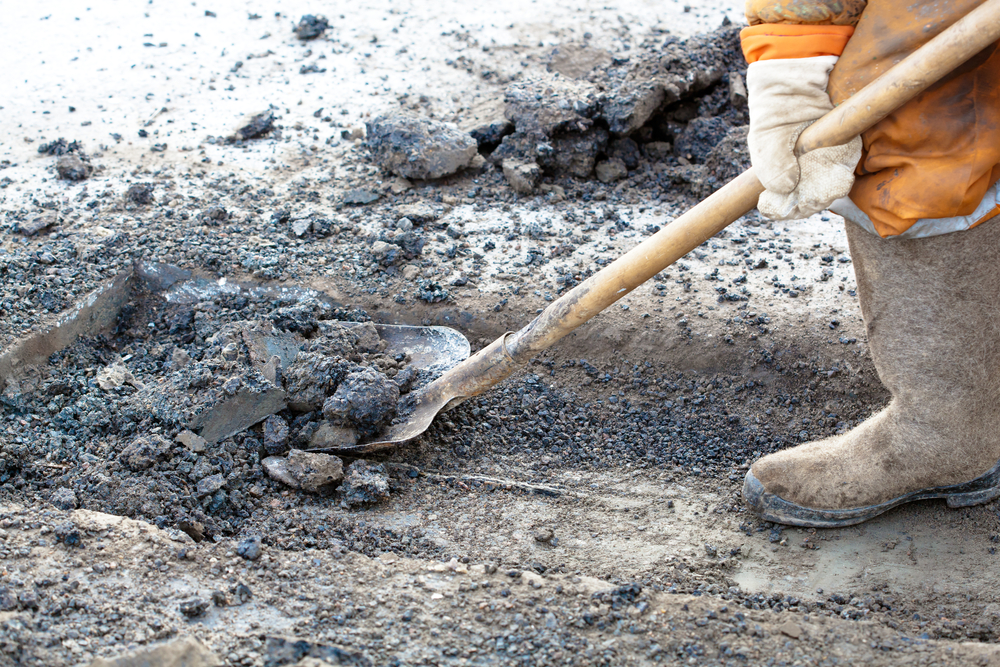
From Potholes to Prevention: Understanding Memphis Freeze-Thaw Cycles
Memphis, Tennessee, known for its rich cultural heritage and iconic blues music, is also no stranger to unique weather patterns. With its location along the Mississippi River and a climate that oscillates between hot summers and chilly winters, Memphis experiences a significant phenomenon known as freeze-thaw cycles. These cycles play a crucial role in the deterioration of pavements, creating challenges for infrastructure maintenance and development. Understanding these cycles is vital for effective solutions, particularly when it comes to asphalt paving in Memphis, TN.
What Are Freeze-Thaw Cycles?
Freeze-thaw cycles occur when temperatures hover around the freezing point, causing water to freeze and thaw repeatedly. In Memphis, winters often include days where temperatures dip below freezing overnight, only to warm up during the day. This fluctuation is particularly damaging to pavements because water trapped in small cracks expands when it freezes. The expansion exerts pressure on the surrounding material, weakening it over time. When the ice melts, the pressure is relieved, leaving behind gaps that invite more water. Over successive cycles, these gaps grow larger, leading to visible cracks and potholes.
The extent of damage caused by freeze-thaw cycles depends on several factors, including the frequency of freezing temperatures, the presence of water, and the type of pavement material. In Memphis, where winters are mild compared to northern states, the cycles might seem less intense. However, the frequency of temperature shifts around freezing creates a unique challenge for asphalt paving and road maintenance.
The Impact of Weather on Pavement in Memphis, TN
Understanding how weather impacts pavement in Memphis, TN requires a closer look at the city’s climate. While Memphis doesn’t experience the extreme cold of northern regions, its winters still bring enough freeze-thaw activity to degrade roadways. In addition, Memphis is subject to occasional ice storms and heavy rainfall, which exacerbate the effects of freeze-thaw cycles.
Asphalt, a common material for pavements in Memphis, is particularly vulnerable to weather-related wear and tear. The combination of freezing temperatures, moisture infiltration, and the pressure from expanding ice accelerates the degradation of asphalt surfaces. During warmer months, the opposite problem arises: the intense heat causes asphalt to soften and weaken. Over time, these alternating conditions lead to cracks, uneven surfaces, and potholes that compromise the safety and efficiency of roadways.
Heavy rainfall is another key factor influencing pavement health. Memphis’s proximity to the Mississippi River means the region frequently experiences wet conditions. Water is a primary catalyst for freeze-thaw damage, as it seeps into even the smallest cracks in pavement. When the temperature drops, this water freezes, leading to the expansion and damage previously mentioned. Without proper drainage systems and timely maintenance, these issues can escalate, making the roads not only unsightly but hazardous.
How Freeze-Thaw Cycles Create Potholes
Potholes are one of the most visible and frustrating consequences of freeze-thaw cycles. In Memphis, where freeze-thaw cycles are common, potholes often appear as a result of the repeated expansion and contraction of water in pavement cracks. The process begins innocuously with small fissures or imperfections in the asphalt. As water infiltrates these cracks and freezes, the expansion forces the material apart, causing the cracks to widen.
As the ice melts, the weakened material is further compromised, creating a void beneath the surface. When vehicles drive over these weakened areas, the pressure causes the surface layer to collapse, forming a pothole. The cycle repeats as more water enters the damaged area, leading to larger and more numerous potholes over time.
For residents and businesses in Memphis, potholes are more than just a nuisance. They pose safety risks to drivers and pedestrians, damage vehicles, and increase wear on road infrastructure. Addressing the root causes of pothole formation—namely, the effects of freeze-thaw cycles—is essential for maintaining functional and durable roadways in the region.
Preventing Pavement Damage in Memphis
Given the challenges posed by freeze-thaw cycles, preventing pavement damage requires a proactive and multifaceted approach. For asphalt paving in Memphis, TN, adopting best practices and utilizing modern materials can significantly improve the longevity and resilience of pavements. Proper drainage, regular maintenance, and innovative construction techniques are key components of a successful pavement management strategy.
One of the most effective ways to combat freeze-thaw damage is to prioritize drainage. Ensuring that water is directed away from the pavement surface reduces the amount of moisture that can infiltrate cracks and exacerbate the freeze-thaw cycle. This includes installing proper gutters, curbs, and stormwater management systems that channel water efficiently. For existing roads, regular cleaning and clearing of debris help maintain effective drainage.
In addition to drainage, preventive maintenance is essential. Sealing cracks and filling potholes promptly prevents water from infiltrating and causing further damage. For asphalt surfaces, applying sealcoats adds an extra layer of protection against moisture and temperature fluctuations. By addressing small issues early, municipalities and property owners can avoid the costly repairs associated with larger-scale pavement failures.
Advancements in materials and construction methods also offer promising solutions. Modern asphalt mixes are designed to withstand the effects of temperature changes and moisture better than traditional formulations. For example, polymer-modified asphalt enhances flexibility and resistance to cracking, making it an excellent choice for regions with freeze-thaw cycles. Additionally, incorporating recycled materials into asphalt not only reduces environmental impact but also improves durability.
The Role of Community Awareness and Action
While engineers and contractors play a critical role in preventing pavement damage, community involvement is equally important. Raising awareness about how weather impacts pavement in Memphis, TN can empower residents and businesses to take action and advocate for better road maintenance practices.
Simple steps, such as reporting potholes and other road issues promptly, can help local authorities address problems before they worsen. Many cities, including Memphis, have dedicated apps or hotlines for reporting road damage, making it easier for citizens to contribute to road safety. Educating the public about the importance of proper drainage around their properties can also reduce the amount of water that reaches roadways, minimizing the impact of freeze-thaw cycles.
Moreover, community-driven initiatives can foster collaboration between local governments, businesses, and residents. Hosting workshops on pavement maintenance, organizing neighborhood cleanup events, and supporting infrastructure improvement projects are just a few ways to promote collective responsibility for maintaining Memphis’s roadways. By working together, communities can create a safer, more sustainable environment for everyone.
Conclusion
Understanding Memphis’s freeze-thaw cycles and their impact on pavements is crucial for addressing the city’s infrastructure challenges. From implementing effective drainage systems to using durable asphalt mixes, there are numerous strategies to mitigate the effects of weather on roadways. By combining technical expertise with community action, Memphis can not only reduce the prevalence of potholes but also ensure its roads remain safe and functional for years to come.
Got Questions? Let Us Help!
More...
Categorised in: Asphalt Paving




